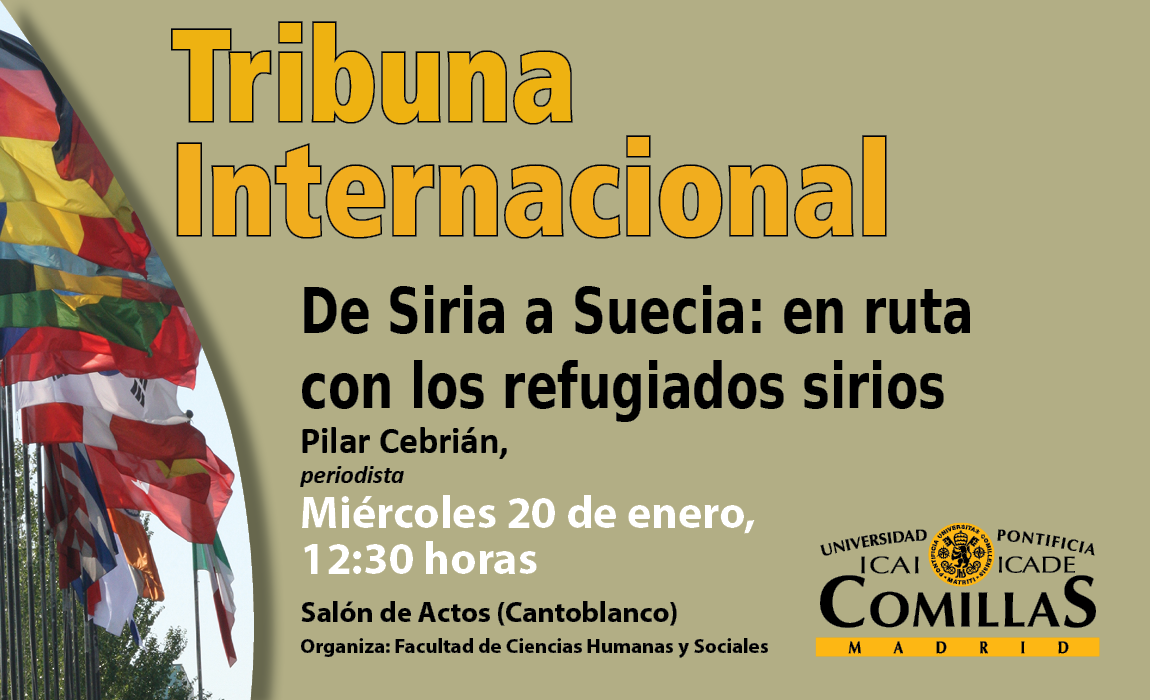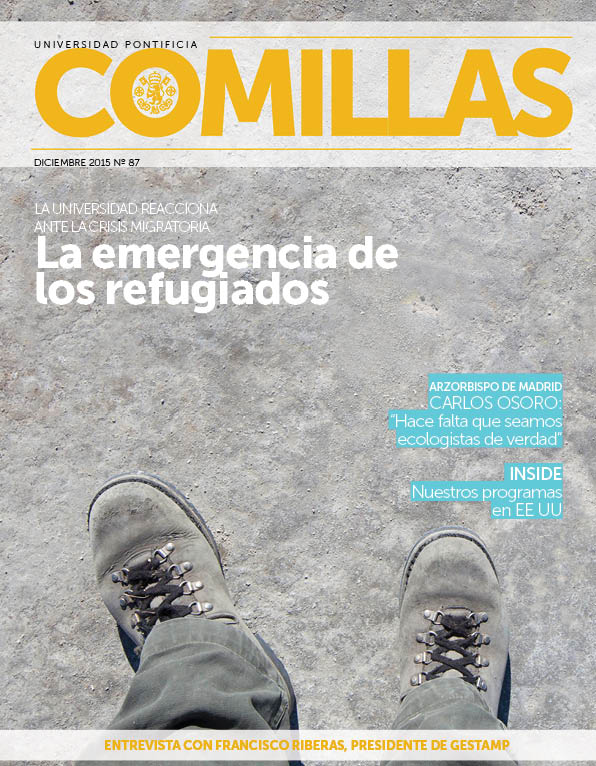En la próxima sesión de la Tribuna Internacional organizada por la Facultad de Ciencias Humanas y Sociales, la periodista Pilar Cebrián impartirá la conferencia “De Siria a Suecia: en ruta con los refugiados sirios”. Será el miércoles 20 de enero, a partir de las 12:30 horas, en el Salón de Actos del campus de Cantoblanco. 
La emergencia de los refugiados
El último número de la revista Comillas lleva en portada la reacción de la universidad ante la emergencia de los refugiados. Un reportaje en profundidad, se pregunta si hay solución a la crisis migratoria, y desgrana las iniciativas que han nacido en Comillas. Además, la profesora Cristina Gortázar firma una tribuna sobre Europa y los refugiados.
Refugiados. Nuevos retos, nuevas políticas
La Universidad Pontificia Comillas, a través del Rectorado, el Instituto Universitario de Estudios sobre las Migraciones (IUEM) y la Facultad de Teología, y el Servicio Jesuita a Migrantes convocan la jornada «Refugiados. Nuevos retos, nuevas políticas», que se celebrará el 20 de enero, en la Sala de Conferencias (Alberto Aguilera, 23).
Consulta el programa.

